Current News
/ArcaMax
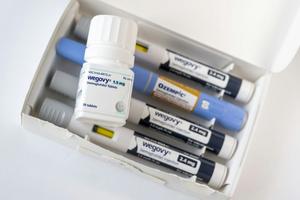
GLP-1 drugs may fight addiction across every major substance, according to a study of 600,000 people
A patient of mine, a veteran who had tried to quit smoking for over a decade, told me that after he started a GLP-1 drug for his diabetes, he lost interest in cigarettes. He didn’t use a patch. He didn’t set a quit date. He simply lost interest. It happened without effort.
Another patient on one of these drugs for weight loss told...Read more
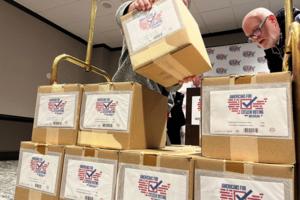
Michigan group claims 750,000 signatures for proof of citizenship proposal
LANSING, Mich. — A Michigan ballot committee said Wednesday that it collected more than 750,000 signatures in support of an effort to put a proposal before voters that would require individuals to provide proof of citizenship and photo ID in order to vote.
Americans for Citizen Voting planned to turn in its petition signatures Wednesday ...Read more
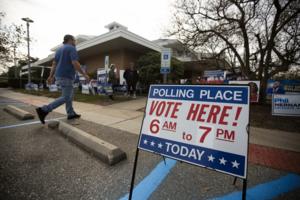
Early voting on Virginia redistricting referendum begins Friday
NORFOLK, Va. — Early voting for the April 21 referendum on redistricting ahead of the 2026 midterms is set to begin on Friday.
The referendum and other surrounding procedures are the subject of ongoing legal challenges, but the vote on it is being allowed to move forward as planned following rulings — the latest on Wednesday — by the ...Read more
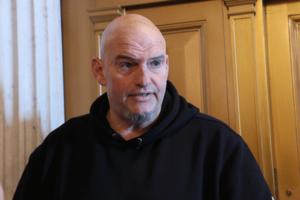
John Fetterman is the only Democrat to vote against curbing Trump's power to order strikes in Iran
U.S. Sens. John Fetterman and Dave McCormick voted Wednesday against advancing a war powers resolution that would have barred President Donald Trump from ordering further strikes on Iran without congressional approval.
The vote came days after United States and Israel launched a missile attack on Iran, killing that nation’s supreme leader, ...Read more
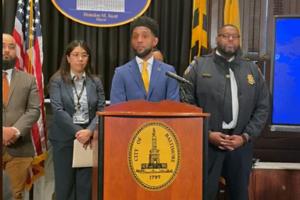
Baltimore mayor's order limits ICE access, boosts immigrant protections
BALTIMORE — Mayor Brandon Scott signed an executive order this week aimed at shielding Baltimore residents from federal immigration enforcement while providing city-backed legal support.
The “Protecting the Rights and Well-Being of Baltimore City Residents” order bars Immigration and Customs Enforcement (ICE) agents from using city-owned ...Read more
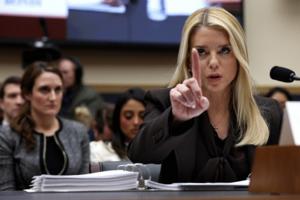
Pam Bondi subpoenaed by House panel to testify on Epstein files
WASHINGTON — The House committee investigating Jeffrey Epstein voted to subpoena U.S. Attorney General Pam Bondi to testify on her handling of Justice Department files on the disgraced financier.
The Republican-led House Oversight Committee voted 24 to 19 Wednesday to issue the subpoena.
A Justice Department spokesman didn’t immediately ...Read more
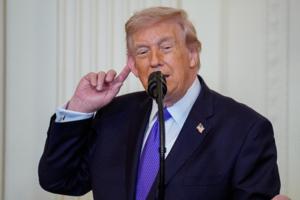
White House targets week of March 30 for budget release
WASHINGTON — The White House tentatively aims to release President Donald Trump’s fiscal 2027 budget proposal the week of March 30, according to multiple sources with knowledge of the plan.
That timing would put budget delivery some eight weeks after the statutory due date of the first Monday in February, though presidential budgets often ...Read more
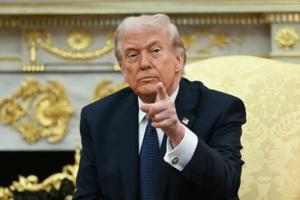
Senate rejects war powers measure to withdraw forces from Iran
WASHINGTON — Senate Republicans blocked a war powers resolution Wednesday designed to withdraw U.S. forces from hostilities in Iran, as the Trump administration accelerates its military campaign in a conflict that has killed hundreds, including at least six American service members.
The motion failed in a vote of 47-53.
In addition to ...Read more
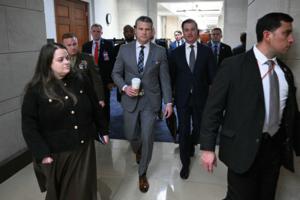
Hegseth says US is 'accelerating' war on Iran, as White House demands allied cooperation
WASHINGTON — The U.S. war effort against Iran was “accelerating” as American and Israeli forces fought for control of Iranian airspace and pressed farther inland to seek and destroy Iranian missile capabilities, top U.S. officials said Wednesday.
“Four days in, we have only just begun to fight,” said U.S. Defense Secretary Pete ...Read more
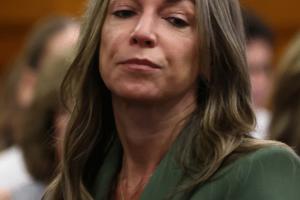
Karen Read claims she never told Turtleboy, 'I'm dead. I'm (expletive) dead,' amid fight for her phones
BOSTON — Karen Read is pushing back against the O’Keefe family in the wrongful death lawsuit against her, as she claims that she never told Turtleboy, “I’m dead. I’m (expletive) dead.”
That alleged quote was included in a recent court filing from the family of the late John O’Keefe. The family is suing Read for the death of her ...Read more
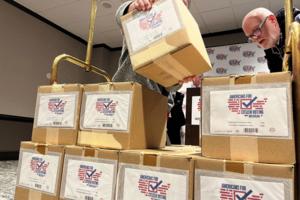
Michigan group claims 750,000 signatures for proof of citizenship proposal
LANSING, Mich. — A Michigan ballot committee said Wednesday that it collected more than 750,000 signatures in support of an effort to put a proposal before voters that would require individuals to provide proof of citizenship and photo ID in order to vote.
Americans for Citizen Voting planned to turn in its petition signatures Wednesday ...Read more
Pentagon to cancel military fellowships at Carnegie Mellon
PITTSBURGH — The Pentagon will cancel senior service college fellowships at Carnegie Mellon University and 21 other institutions, citing concerns with perceived bias at these schools.
Five military students will be impacted at CMU, according to a memo sent by Defense Secretary Pete Hegseth late last week.
Other institutions cut off include ...Read more

Will Michigan opt into Trump's school choice program? Whitmer hasn't decided
TROY, Mich. — Gov. Gretchen Whitmer said Wednesday she would need more information before deciding whether Michigan would join at least 23 other states in opting in to a federal scholarship program giving taxpayers up to $1,700 for private school tuition or other educational uses.
The Democrat governor said President Donald Trump's Education ...Read more

Parolee with 131 arrests arrested for setting homeless man on fire at Penn Station, police says
NEW YORK — A parolee with a criminal record that includes 131 prior arrests in New York City was busted Wednesday for setting a homeless man on fire as he slept at Penn Station, according to police and prosecutors.
Damon Johnson, 47, is charged with attempted murder and assault for the attack on Monday that left a 37-year-old man with second-...Read more
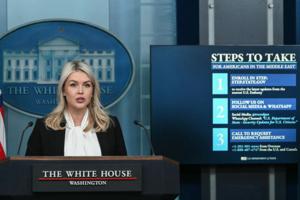
Justifications for war multiply at White House
WASHINGTON — The White House tried for a fifth day Wednesday to explain why the United States is waging war in Iran — this time it was press secretary Karoline Leavitt’s turn — as Democrats said the president has not made a clear case.
Leavitt led her Wednesday press briefing by dubbing the Iranian government led by Ayatollah Ali ...Read more
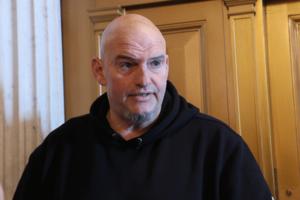
John Fetterman prepares to vote 'no' on reining in Trump on Iran as other Democrats decry 'unnecessary' war
WASHINGTON — As Congress prepared to vote on whether to rein in the American assault on Iran, U.S. Sen. John Fetterman joined Pennsylvania Republicans in continuing to enthusiastically support the military effort while other Democrats railed against what they said was an increasingly dangerous and unnecessary war.
Fetterman has spent the days...Read more
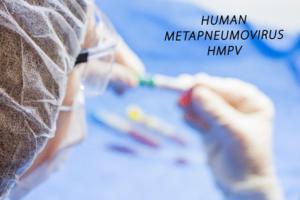
A virus without a vaccine or treatment is hitting California. What you need to know
LOS ANGELES — A respiratory virus that doesn’t have a vaccine or a specific treatment regimen is spreading in some parts of California — but there’s no need to sound the alarm just yet, public health officials say.
A majority of Northern California communities have seen high concentrations of human metapneumovirus, or HMPV, detected in ...Read more
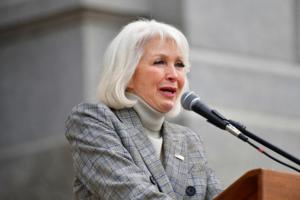
Colorado Democrats blast Gov. Jared Polis as he again hints at intervening in Tina Peters' prison sentence
DENVER — Colorado Gov. Jared Polis has again signaled that he thinks Tina Peters’ prison sentence was too harsh as he considers granting some form of clemency — though not a full pardon, his office confirmed Wednesday.
In a social media post Tuesday night, Polis — who has also faced months of pressure from President Donald Trump to ...Read more
Florida men who tried to invade Cuba by boat charged with terrorism, Havana says
The Cuban government says the Cuban nationals living in Florida who allegedly attempted to carry out attacks on the island will be tried on terrorism charges.
Six men Cuba accuses of trying to infiltrate the island aboard a speedboat brimming with bombs, ammunition and guns will be held in pre-trial detention while the legal process is ongoing,...Read more
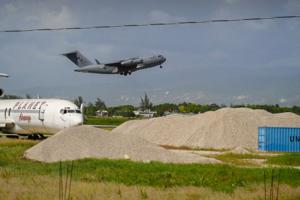
FAA extends ban over Haiti's capital, widens airspace restrictions
The Federal Aviation Administration is extending its ban on U.S. commercial airlines flying into Haiti’s gang-ridden capital, while also widening the restricted airspace beyond Port-au-Prince to include parts of southern and central Haiti as well as the Artibonite region.
“Gangs have increasingly conducted violent attacks in the Artibonite ...Read more
Popular Stories
- Ivana Trump's Upper East Side home sells for $14 million, report says
- Health Care Helpline: To avoid care disruptions, know when the clock runs out on your prior authorization
- What to watch from Trump's national AI standard
- Mom found guilty of sex assault, child endangerment charges in California teen sex party trial
- Radio host Sid Rosenberg apologizes for bigoted rant against NYC Mayor Mamdani, claims it had 'nothing to do' with religion





